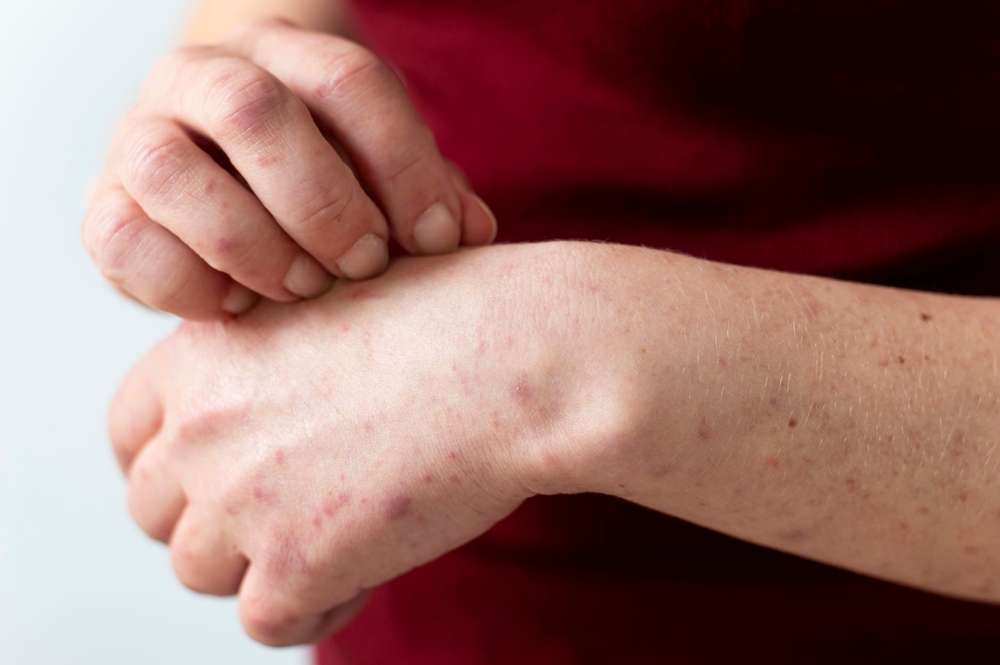The Hidden Risks Of Atopic Dermatitis You Need To Know
Atopic dermatitis is often dismissed as just another skin issue, but its impact can go far beyond the surface. From persistent discomfort to sleep disruption and emotional strain, the effects may influence more than you expect. Understanding how this condition unfolds, what triggers flare-ups, and how it can affect daily life is essential for taking informed steps forward. For those managing symptoms, clarity can be a key part of control.

What Are the Common Symptoms of Atopic Dermatitis?
Atopic dermatitis manifests through a range of symptoms that can vary in severity. The most prevalent signs include dry, itchy skin that can become red, inflamed, and scaly. In more severe cases, the affected areas may develop small, fluid-filled blisters that can crack and weep. The intense itching associated with atopic dermatitis often leads to scratching, which can further damage the skin and increase the risk of infection.
How Can Atopic Dermatitis Affect Daily Life?
The impact of atopic dermatitis on daily life can be substantial. Many individuals experience constant discomfort and itching, which can interfere with concentration at work or school. Sleep disturbances are common, as the itching tends to worsen at night, leading to fatigue and decreased productivity during the day. Social interactions may also be affected, as visible skin lesions can cause self-consciousness and anxiety in social situations.
What Triggers Should I Watch Out For With Atopic Dermatitis?
Identifying and avoiding triggers is crucial for managing atopic dermatitis. Common triggers include certain fabrics (like wool or synthetic materials), harsh soaps and detergents, extreme temperatures, and high humidity. Stress, sweat, and specific foods can also exacerbate symptoms for some individuals. Environmental factors such as pollen, dust mites, and pet dander may trigger flare-ups in those with allergic tendencies.
How Do Treatment Approaches Differ By Severity?
Treatment for atopic dermatitis is typically tailored to the severity of the condition. For mild cases, over-the-counter moisturizers and topical corticosteroids may be sufficient to manage symptoms. Moderate cases might require prescription-strength topical medications or immunomodulators. Severe cases may call for systemic treatments such as oral corticosteroids, immunosuppressants, or biologic drugs that target specific components of the immune system.
What Are the Long-Term Consequences of Untreated Atopic Dermatitis?
Untreated atopic dermatitis can lead to several long-term consequences. Chronic inflammation can cause skin thickening and discoloration, a condition known as lichenification. Persistent scratching may result in permanent scarring. Additionally, individuals with atopic dermatitis are at higher risk for developing other atopic conditions such as asthma and allergic rhinitis, a phenomenon known as the “atopic march.”
How Can Lifestyle Changes Help Manage Atopic Dermatitis?
Implementing certain lifestyle changes can significantly improve the management of atopic dermatitis. Regular moisturizing with fragrance-free, hypoallergenic products helps maintain the skin barrier. Using gentle, non-irritating cleansers and avoiding hot showers can prevent skin dryness. Wearing soft, breathable fabrics like cotton and maintaining a cool, humid environment can reduce irritation. Stress-reduction techniques such as meditation or yoga may also help, as stress is a known trigger for many individuals.
Atopic dermatitis is more than just a skin condition; it’s a complex disorder that can profoundly affect an individual’s quality of life. By understanding its symptoms, triggers, and potential long-term effects, those living with atopic dermatitis can take proactive steps to manage their condition effectively. While treatment approaches may vary based on severity, a combination of medical interventions and lifestyle adjustments can help mitigate the hidden risks associated with this chronic condition. As research continues to advance, new therapies and management strategies offer hope for improved outcomes and better quality of life for those affected by atopic dermatitis.
This article is for informational purposes only and should not be considered medical advice. Please consult a qualified healthcare professional for personalized guidance and treatment.




